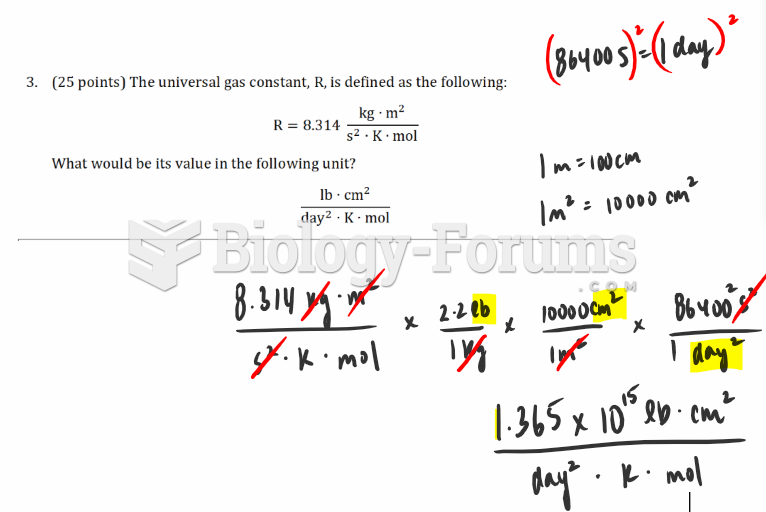|
|
|
On average, the stomach produces 2 L of hydrochloric acid per day.
Over time, chronic hepatitis B virus and hepatitis C virus infections can progress to advanced liver disease, liver failure, and hepatocellular carcinoma. Unlike other forms, more than 80% of hepatitis C infections become chronic and lead to liver disease. When combined with hepatitis B, hepatitis C now accounts for 75% percent of all cases of liver disease around the world. Liver failure caused by hepatitis C is now leading cause of liver transplants in the United States.
According to the CDC, approximately 31.7% of the U.S. population has high low-density lipoprotein (LDL) or "bad cholesterol" levels.
Anti-aging claims should not ever be believed. There is no supplement, medication, or any other substance that has been proven to slow or stop the aging process.
There are major differences in the metabolism of morphine and the illegal drug heroin. Morphine mostly produces its CNS effects through m-receptors, and at k- and d-receptors. Heroin has a slight affinity for opiate receptors. Most of its actions are due to metabolism to active metabolites (6-acetylmorphine, morphine, and morphine-6-glucuronide).
 Part of the Hubble Ultra-Deep Field image showing a typical section of space containing galaxies int
Part of the Hubble Ultra-Deep Field image showing a typical section of space containing galaxies int
 Uranus revolves around the Sun once every 84 Earth years. Its average distance from the Sun is rough
Uranus revolves around the Sun once every 84 Earth years. Its average distance from the Sun is rough





